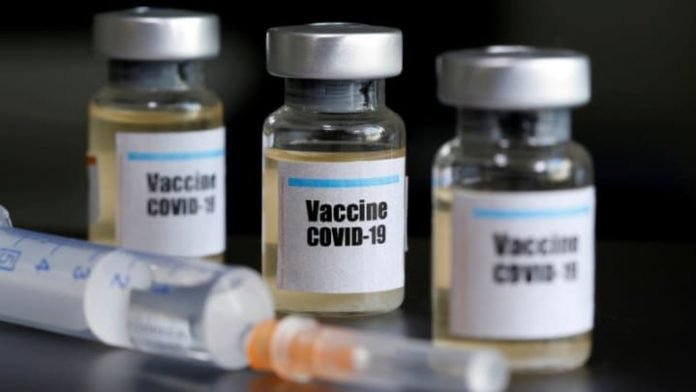Last week, the state announced that vaccination eligibility would be expanded on March 8.
MICHIGAN, UNITED STATES OF AMERICA-Starting Monday, March 8, people 50 and older with a pre-existing illness, as well as family members, will be candidates for the COVID-19 vaccine.
Beginning Monday, March 22, all Michiganders 50 and over will be eligible for vaccines once again.
The COVID-19 Vaccine Is Now Available To People 50 Years Of Age And Older, As Well As Parents With Children With Special Health Needs
Contents
This is a change from former prioritization rules, which had other critical staff, such as grocery store employees, as the second group to receive the vaccine.
“MDHHS is accelerating vaccination of these people due to concerns about disparities in life expectancy and to eliminate obstacles to vaccine access,” the state said of the extension.
The state aims to vaccinate 70% of those aged 16 and up as soon as possible.

According to MDHHS’s vaccine extension, the following individuals are eligible:
❓ I’m a disabled person. Is a vaccine appropriate for me?
An individual with a disability, according to the ADA, is someone who has a physical or mental disorder that significantly restricts one or more main life activities.
This covers those who have a history of such a condition, even though they do not have one now.
Individuals who do not have a disorder yet are perceived to have one are also included. Eating, resting, talking, lifting, reading, bending, focusing, dreaming, speaking, and working are examples of main life habits. Furthermore, the ADA covers primary bodily functions.
❓ What medical problems make me qualify for vaccination during this period, which is only for people over 50?
COVID-19 is most likely to cause severe disease in people with some underlying medical conditions.
COVID-19-related severe illness is characterized as hospitalization, ICU entry, intubation or mechanical ventilation, or death.
• Cancer – Chronic Kidney Disorder (CKD)
• Chronic Obstructive Pulmonary Disease (COPD)
• Down Syndrome is a type of genetic disorder
• Cardiac problems like heart attack, coronary artery disease, and cardiomyopathies
• Immunocompromised condition as a result of solid organ transplantation
• Obesity (BMI of 30 kg/m2 or greater but less than 40 kg/m2)
• Obesity with a BMI of 40 kg/m2 or higher
• Becoming pregnant
• Sickle cell anemia
• Tobacco use
• Diabetes mellitus type 2
Read More: COVID-19 Vaccination: Is It Required To Evade Pain Relievers After Getting Pierced
The following medical conditions can increase a person’s risk of serious illness from the COVID-19 virus, making them eligible for vaccination at this age:
- Asthma is a condition that affects many people (moderate-to-severe)
- Cerebrovascular disorder (CVD) is a condition that affects the brain (affects blood vessels and blood supply to the brain)
- Cystic fibrosis is a disease that affects the lungs
- High blood pressure (hypertension)
- Immunocompromised state (weakening immune system) as a result of a blood or bone marrow transplant, immune deficiencies, HIV, corticosteroids, or other immune-suppressing medications
- Dementia and other neurologic disorders • Liver disorder
- Obesity (BMI > 25 kg/m2, but less than 30 kg/m2)
- Fibrosis of the lungs (having damaged or scarred lung tissues)
- Thalassemia is a condition in which a person has (a type of blood disorder)
- Diabetes mellitus type 1
COVID-19 is caused by a virus that infects people of all ages. However, research shows that two types of individuals are more likely to have severe COVID-19 disease than others.
There are the elderly (those above the age of 60) and those with existing medical problems (such as cardiovascular disease, diabetes, chronic respiratory disease, and cancer).
From the age of 40, the risk of severe disease increases. Adults in this age group must defend themselves to protect those who could be more vulnerable.
WHO has issued recommendations, for these two communities and mutual support to ensure that, they are shielded from COVID-19 without being isolated, stigmatized, placed in a vulnerable situation, or unable to access introductory provisions and social services.
The risk of transmitting rises in any situation where individuals are near one another for long periods. Indoor settings, especially those with low or no ventilation, are riskier than outdoor environments.
In the “Three C’s,” transmission is more comfortable to achieve:
- crowded areas with a large number of people nearby.
- Situations in which people are near one another, mainly when they are conversing.
- Lack of air in confined and sealed spaces.
- Where these “3Cs” intersect, the probability of COVID-19 spreading is higher.
I am a caregiver for a child who needs special medical attention. Is it possible for me to get vaccinated?
At this time, caregivers, family members, and parents of children with special health care needs who are 16 years or older should be vaccinated.
Any physical, developmental, mental, visual, behavioral, cognitive, or emotional disability or restricting disorder that necessitates medical management, health care attention, and/or the use of specialist resources or programs is considered a particular health care need.
The infection can be congenital, developmental, or acquired due to cancer, illness, or environmental factors, and it can restrict normal self-care behaviors or severely limit a significant life operation.
Also, read Why Should You Receive A COVID Vaccine? How Does It Work?
